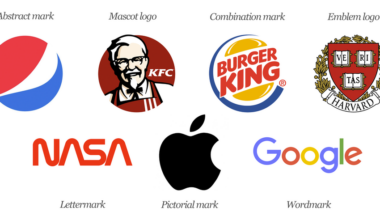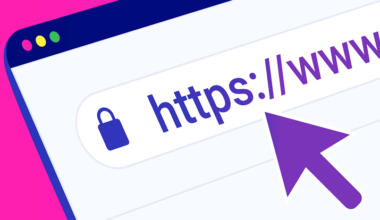Have you been contemplating on which platform to use to grow your business? Do you always get confused about making a choice, either a Facebook Page or a Facebook Group?
Then this is for you!
Facebook is a great tool for reaching audiences—whether as a business, an individual, or an organization. In fact, anyone with a Facebook profile can create a page or a group. Let us take a look at the basics of Facebook pages and groups, the differences between the two, so that you could make the choice on the one suitable for you.
FACEBOOK PAGE
A Facebook page is a public profile that allows companies and brands to introduce their services and activities. A group is a community-based feature that gathers people with the same interests to discuss topics and share their opinions. A Facebook page is basically a non-personal profile page—such as a profile for a company, brand, organization, or website. You can also have Facebook pages for public figures such as politicians and celebrities. Pages differ from a typical Facebook profile in that they can be run by multiple people, they can be followed or liked by anyone on Facebook, and their posts can be monetized and promoted.
Some of the main features of Facebook pages include:
– Posts by the page are prioritized on the landing/homepage.
– Community/follower posts can be accessed via the Community Tab.
– Groups can be linked to the page An optional reviews feature.
– Messaging functionality which followers can use to talk to the page’s admins.
– Verification functionality to confirm the legitimacy of a page (similar to Twitter’s verified status).
– Profile information on a brand or company, including a description, contact information, location, and operating hours.
-Posts that can be promoted or boosted with money.
– Analytics tab that tracks follower engagement and post reach.
FACEBOOK GROUP
Groups are something entirely different. While Pages are essentially profile pages maintained and updated by the administrators, Facebook Groups are maintained by the community. The administrators can set up a Group to have open membership, membership upon approval, or membership by invitation only. Once someone becomes a member of that group, they can start posting to that group. Posts will show up in members’ news feeds. Group administrators’ role is to moderate the members’ posts and to enforce the rules as needed, not just to create content. Facebook Groups are meant to connect your followers to each other. Groups are best if you have a lot of expertise within your community, and you would like to provide a forum for your community to connect.
Some of the main features of Facebook groups include:
- Moderating tools for admin.
- Optional short surveys for people requesting to join the group.
- A built-in events calendar for the group.
- Basic group info, such as a group description.
- The ability to set group rules.
SO, WHAT’S THE DIFFERENCE BETWEEN A GROUP AND A PAGE?
Most of the differences between a Facebook page and group are in their purpose, their privacy controls, and their analytics.
A Facebook page’s purpose is to connect with an audience. As such, it prioritizes the voice and posts of the page. It is not a one-way discussion since users can still engage with posts. But the page takes the lead—it has control over what appears. Followers have a much more passive role and mainly comment on or react to posts. Community posts are not prioritized and appear in a tab separate to the page’s main tab. However, a Facebook group exists for discussion and interaction between members. As such, posts from all members can be seen in a group’s main tab.
In terms of access and privacy controls, a page is always public. The only restrictions that can be added are who can post on your community page, who can tag your page, and whether to restrict your page to certain countries. But if you do not want a page to be viewed publicly, you either have to unpublish it or delete your Facebook page.
On the other hand, groups have multiple levels of privacy. A group can be public (anyone can view and join), subject to admin approval of member requests, or invite-only. This makes them suitable for large communities, but also tiny groups such as a family. Secret or invite-only groups don’t even show up in search results. This is great for people with concerns about your privacy on Facebook.
Finally, analytics are the other main difference. Facebook pages give administrators insights into their audience demographics, post reach, audience engagement, and other analytics.
ADVANTAGES AND DISADVANTAGES OF A FACEBOOK PAGE
Advantages:
- Facebook does not publicly link admin profiles to the page unless admins manually link themselves.
- You get analytics for your page that become more detailed as your follower count grows.
- You can schedule upcoming posts to publish automatically.
- You can promote posts through Facebook’s advertising platform.
- Your ads can be targeted towards certain demographics.
Disadvantages:
- Admin inactivity means that your page’s feed will become inactive.
- Pages are public and visible to everyone by default, so they are not suitable for private use.
- It is easy for users to set up pages which impersonate your brand or company, therefore it may become necessary to go through the verification process.
ADVANTAGES AND DISADVANTAGES OF A FACEBOOK GROUP
Advantages:
- More control over the privacy of members and posts.
- The ability to set a code of conduct or certain rules. You can kick and ban users who break the rules.
Disadvantages:
- Limited reach and limited monetization of content.
- As groups grow larger, moderation may become more difficult.
- Administrators’ personal Facebook profiles are publicly available for members to see.
Page vs Group
Scenarios where you would use a Facebook page include:
1. A brand or company promoting their product.
2. A website that wants to share content with a Facebook audience.
3. A politician who wants to share updates with their voters.
4. An organization or non-profit group that wants to share news and announcements with an audience.
Scenarios where a group is useful include:
1. Linking members of a neighborhood together to share news, updates, and questions.
2. Linking people with a common purpose or interest
3. Sharing updates and information in a central hub for people with a personal link, such as family members, friends, or members of the same organizations.
In either case, getting your nonprofit active on Facebook will put your name out there and offer your supporters a chance to engage with your cause and gain awareness about your newest initiatives. So get started creating your nonprofit’s account, and get ready to see your supporters become your social media ambassadors.
There are other Situation where one can use both a Facebook Page and a Facebook Group
To link a page and a group, you need to be an admin of both. Linking a page to groups is most effective when you want to link a brand to a relevant interest group or community.
A brand such as a TV show may link to a group of their fans. For example, TVC’s News page could choose to link to discussion groups for TVC News fans if they wanted to.
If you run the kind of website that would benefit from user forums, a group can be an easy way to integrate community discussion.
HEY!
By now, I know you have already decided on which would be perfect for you. You want to know how to prevent Hacks on all your social media platform? Check out our next post




